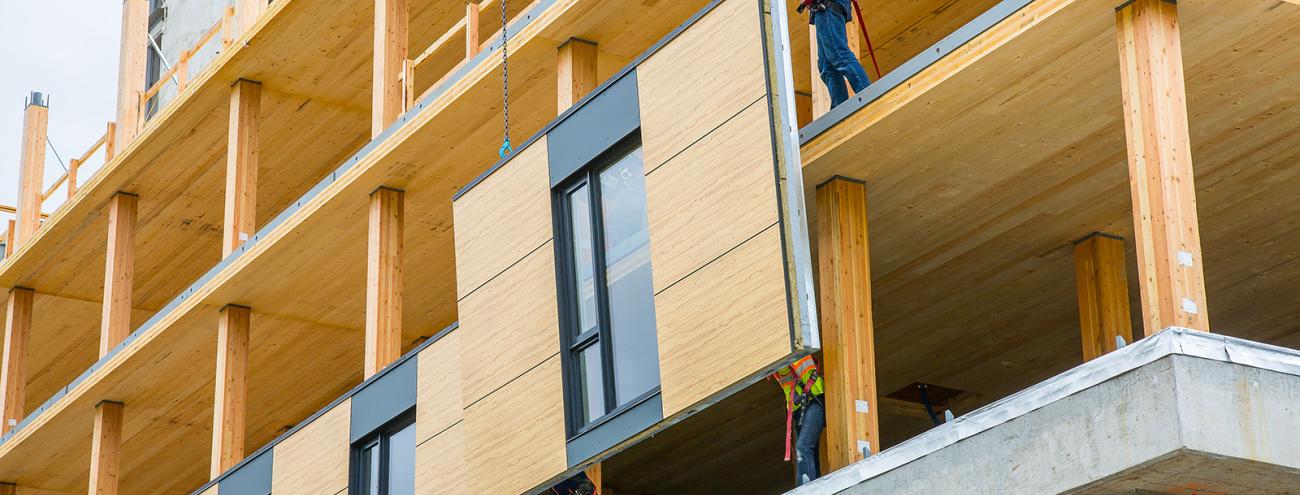
Interview: Dr. Sean Lumb, Interim Managing Director, entrepreneurship@UBC
Dr. Sean Lumb, Interim Managing at entrepeneurship@UBC, offers insight on how his team helps turns ideas into action, and the benefits of participating in citizen science like the Campus as a Living Lab initiative.
What is the operational role of your unit on campus?
entrepreneurship@UBC (e@UBC) helps UBC researchers propel their ground-breaking discoveries into products and services that solve the world’s most pressing problems. We do this by helping to develop viable, transformative ventures built around research innovation. By design, e@UBC enables science-based researchers (faculties, staff, and students) to step out of their technical comfort zones and, with guidance and mentorship from experienced entrepreneurs, investigate and deploy a viable, validated business model.
What are some of the different ways that your Unit can support on-the-ground research on campus?
Many research grants today ask how funding will be used to translate discoveries into impact that can benefit society. entrepreneurship@UBC can help researchers define the potential translational path for a new venture, to build into their research and corresponding grant applications.
entrepreneurship@UBC also offers many learning opportunities throughout the year that support researchers in understanding the potential startup opportunity for their research outcomes, as well as industry networking opportunities that catalyze relationships across the innovation ecosystem. For researchers who decide to pursue a new venture, e@UBC has full scale venture-building supports that surround startups with the resources and community (experienced executives, entrepreneurs, investors, etc.) that they need to build their company for success.
What potential research opportunities excite you the most, with regard to your unit’s function?
As we serve the entire university community, we have the great fortune to work with researchers from every discipline. But, the three areas in which we see the most new venture opportunities are entrepreneurs solving problems in human health, climate, and social systems. Each of these areas has a Venture Studio and community built around it that interfaces with everything from research clusters to industry associations and related faculties.
Venture Studios often incubate ventures that face difficulty attracting first customers or partners to deploy pilots. The Campus as a Living Lab (CLL) initiative provides an excellent opportunity to solve this problem by partnering researchers with UBC to launch climate solutions on campus. The success of the pilot project in proof of concept can then be leveraged to secure additional clients and attract investment funding to scale research impact to society.
What are your operational constraints in incubating on-the-ground research?
One of the biggest challenges with translating research into impact is to secure a partner or client to support a pilot project. The beauty of the CLL initiative is that UBC acts as the first client and supports successful research translation through an on-campus demonstration pilot, with potential to to leverage pilot success to either secure UBC as an ongoing client for the final product/service or to secure additional clients. UBC’s role as a research hub and pseudo-municipality makes it particularly useful for demonstrations of technologies and services that benefit local government or other large institutions.
What are your past research collaborations?
We work closely with researchers on finding a commercial path for their innovation. Two recent examples are Carbin Minerals and Bioform, UBC spin-off ventures based on innovation developed by UBC researchers. Carbin Minerals comes from the CarbMin Lab at UBC led by Professor Greg Dipple, who, with his team, has developed technology to unlock the enormous carbon dioxide sequestering potential of mine waste, which will enable mines to become massive carbon sinks, while producing valuable carbon sequestration credits.
Bioform was founded by Dr. Jordan Mackenzie, who holds a PhD in fluid mechanics and developed the technology during his time as a postdoctoral fellow and then research associate at UBC’s department of chemical and biological engineering, working with co-founder and Professor Dr. Mark Martinez. Bioform turns kelp and wood fibre into compostable and fully biodegradable bioplastic materials that can replace petrochemical-based single-use plastics, ranging from agricultural mulch films to food packaging. entrepreneurship@UBC is providing industry-specific business development resources and mentoring through our Climate Venture Studio.
We also work with faculties, schools and institutes to support their researchers in building an entrepreneurial mindset. Examples include: supporting student teams and delivering content in the Engineers in Scrubs Program, the Imagine Journalism program, Arts Amplifier, and co-delivering the Innovation UBC / e@UBC Research Impact Challenge.”
A recent and exciting example in our Human Health Venture Studio has been with the School of BioMedical Engineering (SBME) Propels initiative built and delivered in partnership with entrepreneurship@UBC and SBME, which launched in September 2021. Planning has now begun for the 2022 edition of the series. SBME Propels is an extracurricular series of workshops, seminars and panels for the SBME community, segmented into 4 streams: (1) Research Partnerships, (2) Translating your Innovations, (3) Career Pathing and Professional Skills for Trainees, and (4) Leadership for Early-career Faculty. All four streams will be available in parallel, with sessions taking place virtually as lunch-and-learns.
We are always seeking new opportunities to support researchers, faculties, and initiatives in innovative ways, and look forward to finding more opportunities to collaborate on bringing climate and social and human health innovation to the world.